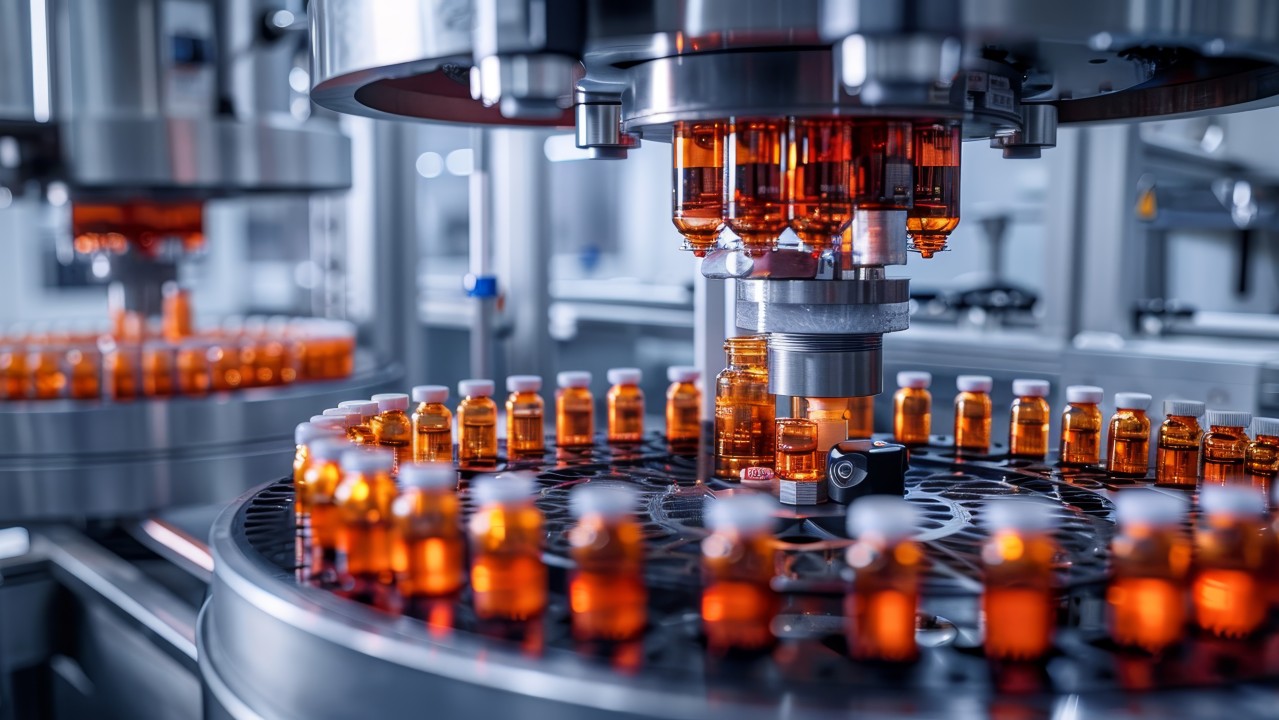
Revolutionizing Pharmaceutical Manufacturing: Innovation, Efficiency, and Compliance
The pharmaceutical manufacturing industry is at a pivotal point, where balancing innovation, efficiency, and compliance is more critical than ever. From Active Pharmaceutical Ingredients (APIs) to biopharmaceuticals, the process of developing, producing, and delivering safe and effective medications has evolved dramatically. The rising demand for high-quality, affordable drugs, coupled with the need for stringent regulatory compliance, has made it essential for pharmaceutical manufacturers to adopt cutting-edge technologies and streamline production processes.
This article delves into four key areas of pharmaceutical manufacturing - API production, Finished Dosage Forms (FDFs), biopharmaceuticals, and generic drugs - and explores how innovation and technology are transforming each step of the pharmaceutical supply chain.
Active Pharmaceutical Ingredients (APIs): Efficiency and Quality Control at the Core
At the heart of any medication is the Active Pharmaceutical Ingredient (API), which provides the therapeutic effect. Producing APIs requires extreme precision and control to ensure that the final medication is both safe and effective. The complexity of API production, with its resource-intensive processes, poses significant challenges, particularly in maintaining consistent quality and regulatory compliance.
Today, AI-driven process optimization and automation are key tools helping pharmaceutical manufacturers improve API production. AI systems enable real-time monitoring of production variables, while predictive maintenance reduces downtime by anticipating equipment issues before they occur. Continuous manufacturing, coupled with digital twins, ensures that APIs are produced with the highest degree of consistency and efficiency.
In this era of advanced pharmaceuticals, API production no longer needs to be resource-draining; with automation and AI-powered solutions, pharmaceutical companies can scale production efficiently, reduce waste, and guarantee the highest quality output.
Finished Dosage Forms (FDFs): Streamlining Manufacturing and Ensuring Compliance
Finished Dosage Forms (FDFs) - the final product that patients receive - represent one of the most critical stages in pharmaceutical manufacturing. Whether it’s a tablet, capsule, injectable, or cream, FDF production must meet stringent regulatory standards to ensure safety and efficacy. Maintaining consistent quality across batches, reducing production costs, and complying with Good Manufacturing Practices (GMP) are essential.
Automation is playing a pivotal role in streamlining the manufacturing process for FDFs. Automated systems are now responsible for controlling complex processes like tablet compression, coating, and capsule filling, ensuring that each dosage form meets the required specifications. Meanwhile, AI-driven quality control systems allow manufacturers to monitor critical parameters in real time, ensuring that every batch adheres to strict quality standards and meets regulatory requirements.
By embracing smart manufacturing and AI technologies, pharmaceutical companies are not only improving the efficiency of FDF production but also ensuring that they consistently meet the high standards necessary for regulatory compliance.
Biopharmaceuticals: Navigating Innovation and Complexity
Biopharmaceuticals, or biologics, represent the cutting edge of pharmaceutical innovation. These complex, large-molecule drugs - such as vaccines, gene therapies, and monoclonal antibodies - are reshaping healthcare by offering targeted, personalized treatments. However, the production of biologics is significantly more challenging than traditional pharmaceuticals, requiring advanced bioprocesses, real-time monitoring, and strict regulatory oversight.
领英推荐
The adoption of AI-driven bioprocess optimization is critical to improving the efficiency and quality of biopharmaceutical production. These technologies allow for the precise control of key parameters - such as temperature, pH, and nutrient levels - ensuring that biologics are produced consistently. The emergence of continuous bioprocessing is also transforming the industry, enabling manufacturers to increase output while reducing downtime.
Single-use technologies are another key innovation, offering greater flexibility in production and reducing the risk of contamination. By embracing automation and real-time monitoring systems, biopharmaceutical manufacturers are not only improving efficiency but also ensuring that biologics meet the highest quality standards in an increasingly regulated market.
Generic Drugs: Cost-Effective and High-Quality Production
The generic drug market is essential for making life-saving medications more affordable and accessible to a wider population. Once patents on brand-name drugs expire, generic drugs can be produced at a fraction of the cost, offering the same therapeutic benefits. However, the challenge lies in producing generic drugs at scale while maintaining high quality and regulatory compliance.
Continuous manufacturing and automation are transforming the production of generic drugs, allowing manufacturers to optimize production processes and reduce costs. AI-driven quality control systems are ensuring that every batch of generic drugs meets the same rigorous standards as their branded counterparts. This combination of cost-efficiency and quality assurance is crucial in an industry where maintaining competitive pricing is vital.
Manufacturers of generic drugs must navigate a highly competitive landscape, which requires efficient, scalable, and compliant production processes. By adopting lean manufacturing strategies and optimizing their workflows, companies can reduce operational costs while ensuring that their generic products remain safe, effective, and accessible to patients around the world.
How AiDOOS is Driving Innovation Across Pharmaceutical Manufacturing
The pharmaceutical industry is undergoing a profound transformation, and AiDOOS is at the forefront of this shift. By providing access to expert talent and cutting-edge technology solutions, AiDOOS is empowering pharmaceutical manufacturers to optimize their production processes, improve quality control, and ensure regulatory compliance.
From API production to biopharmaceuticals, AiDOOS connects manufacturers with the tools and expertise needed to adopt AI-driven solutions, automation technologies, and continuous manufacturing systems. These innovations are helping companies streamline operations, reduce costs, and maintain the highest standards of quality and compliance in an increasingly complex industry.
Conclusion: The Future of Pharmaceutical Manufacturing
As the pharmaceutical industry continues to evolve, manufacturers must embrace innovation and technology to stay competitive, meet regulatory standards, and deliver high-quality medications to patients. Whether it's optimizing the production of APIs, improving the efficiency of FDF manufacturing, navigating the complexity of biopharmaceuticals, or streamlining the production of generic drugs, the integration of AI, automation, and continuous manufacturing is key to the future of the industry.
AiDOOS is driving this transformation by offering pharmaceutical companies the tools and expertise they need to thrive in a rapidly changing market. By adopting cutting-edge technologies, pharmaceutical manufacturers can enhance efficiency, reduce costs, and ensure that their products meet the highest standards of quality and safety.